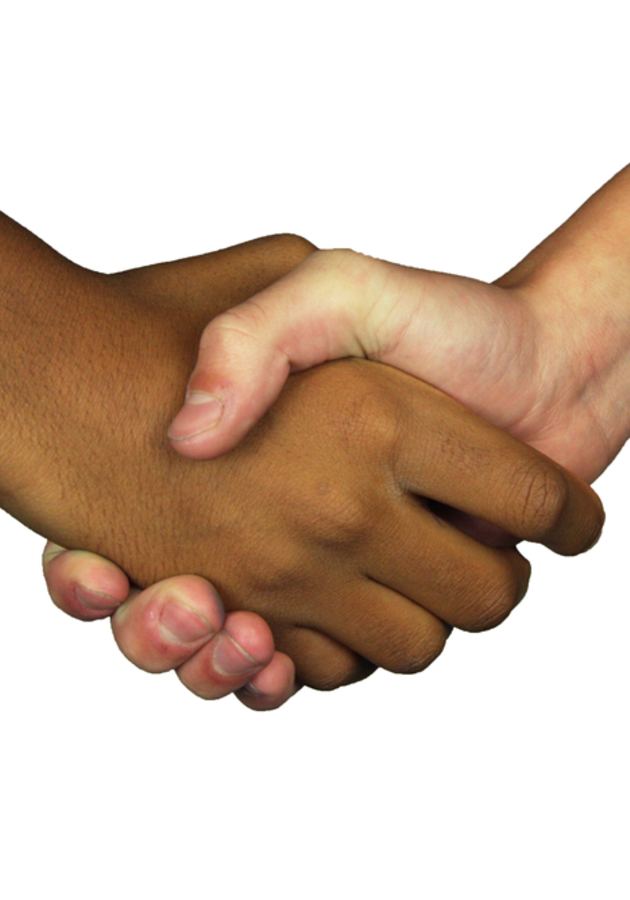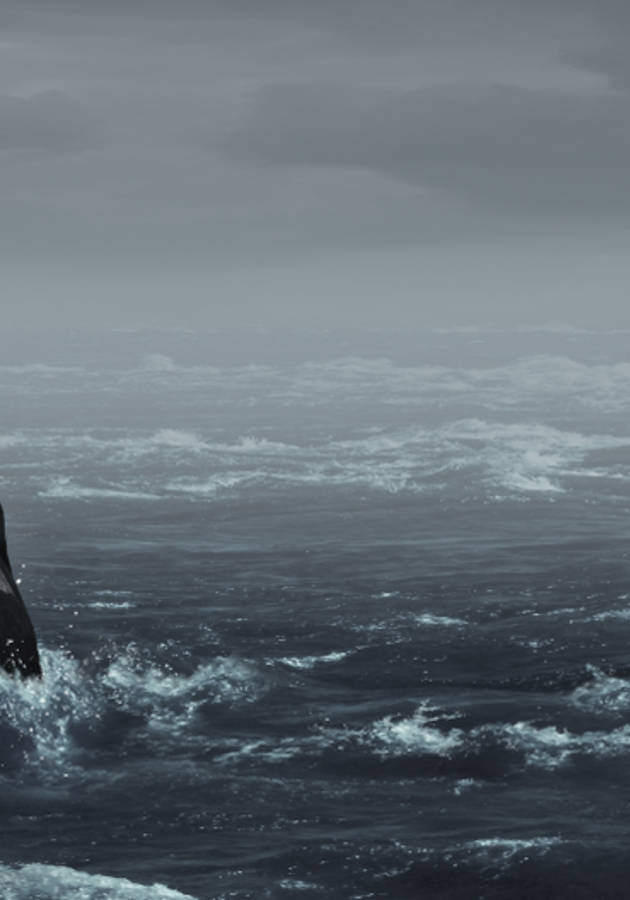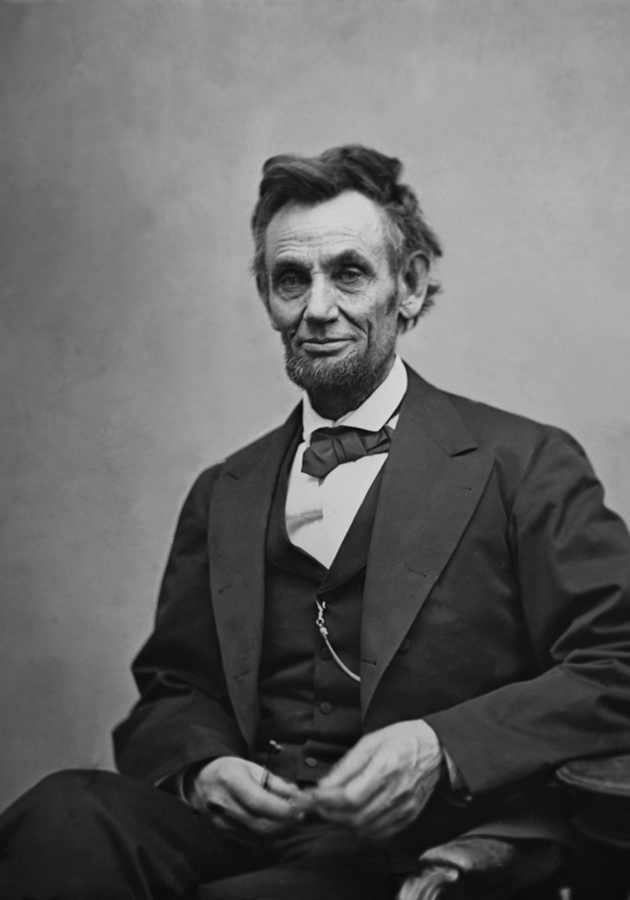When Michelle Obama published her memoir ‘’Becoming’’ in 2018, she was floored by the response from the audience - the book received excellent reviews, and, to her amazement, set sales records around the globe. Numerous readers started contacting her to share their personal stories and ask questions about dealing with various life challenges. As the global pandemic struck the world soon after ‘’Becoming’’ was published, the number of questions continued rising - giving Obama an incentive to write another book where she would share with readers what helps her stay balanced and confident in times of high anxiety and stress. So, get ready to glimpse inside the former First Lady’s ''personal toolbox'' and learn how to find strength and light within yourself, navigate your relationships, override feelings of fear, doubt and helplessness and many more!
Knit your way out of anxiousness
One of the biggest challenges we faced during the COVID-19 pandemic was dealing with stillness and isolation. In a world that sees busyness as a means of being and makes us live by to-do lists and agendas, it is very hard to switch to an opposite mode - even for a weekend, let alone a few months. Many would assume that people would welcome the stillness brought by the pandemic with open arms - some perhaps did right away. However, for some, living without the to-do lists at first meant panic, disorientation, and losing a sense of control. As Obama writes, big storms like pandemics ‘’strip away the signposts and leave us in a changed landscape, changed ourselves, with no choice but to find a new way forward.’’
For Obama, finding a new way forward meant answering unresolved questions that she ‘’stashed on the shelves of her mind’’ and dealing with doubts that she ‘’previously tucked away.’’ ‘’And once I’d pulled them out,’’ she writes, ‘’I couldn’t readily tuck them back in.’’ Overwhelmed by the sense of unease, she tried to relax by shopping. Without quite realizing what she needed them for, she ordered a pair of knitting needles, and started learning knitting skills by following instructors on YouTube. It soon turned out they were just what she needed in times of anxiety and hopelessness. After knitting for a while, she noticed that her focus began to narrow and her mind ‘’felt a little splash of ease.’’ The point is, by putting our hands in charge, knitting lets our minds ‘’trail behind’’ and rest for a while. And not only that - by making you dedicate to doing something simple and accomplishable, knitting also helps you think big again. According to Obama, it makes you realize that the only way to get to a larger answer is by ‘’laying down one little stitch at a time.’’
So, next time you feel anxious, helpless, or overwhelmed by negative feelings, Obama advises you to ‘’go towards the small.’’ Find something you can do that engages both your body and mind. It will give you a sense of ease and accomplishment and help you rearrange your thoughts so you can be prepared for the challenges ahead.
Dealing with monsters and zombies
When they were children, Obama and her brother Craig had a small routine on Saturday nights. The two of them would wrap in a blanket, sit on the couch and watch a TV show called Creature Features, which played reruns of cult monster movies, such as ‘’The Wolf Man,’’ ‘’Dracula’’ and ‘’The Bride of Frankenstein.’’ However, they did not enjoy these evenings equally - while Craig was amused and, by the end of the movie even lulled, his sister felt only fear. She could not decode what was going on in front of her - instead of seeing actors in costumes, she saw only scary monsters. However, the fear didn’t prevent her from going back to the Creature Features every weekend. Of course, this was because she enjoyed being around her big brother, but beyond that because she hoped she would learn to ‘’look at zombies and monsters and feel more comfortably afraid.’’
One of the things Obama realized from watching horror movies is that the key to dealing with fear is exposing yourself to it. That way, you will learn not to be paralyzed when faced with situations or people that scare you. In fact, your goal shouldn’t be becoming comfortable in the presence of zombies and monsters but reaching the state where you are neither fully comfortable nor fully afraid. This will make you think more rationally and enable you to make decisions without being held back by fear. ‘’I’ve met a lot of courageous people in my life,‘’ writes Obama, ‘’from everyday heroes to giants like Maya Angelou and Nelson Mandela—people who, from a distance, might appear impervious to fear (...) Not a single one of them, I would say, would call themselves fearless. Instead, what I think they share is an ability to coexist with jeopardy, to stay balanced and think clearly in its presence.’’
Indeed, we are always afraid of someone or something. Nevertheless, defying your fear does not mean defying the person or thing that scares us, but defying a part of yourself. Doubts that come from within make you miss opportunities and neglect your dreams. By identifying your insecurities, you will become more familiar with your fearful mind, and one step closer to overcoming them.
Cultivate friendships
A pair of knitting needles and horror movies can help you in fearful and anxious times. What you also need, however, is ‘’at least a couple of solid friends around you.’’
Obama says she is not a person who takes friendships lightly. She holds on to her friends ‘’tightly and deliberately,’’ making them both a ‘’commitment and a lifeline.’’ According to her, friends can get you further in life, but only if you invest in each other. The starting point of your investment should be your contact. However busy you are, you need to make room in your schedule to meet your friends regularly. ‘’For me, it’s all about showing up’’, Obama emphasizes. Even during the White House years, she tried to meet her closest friends often, so she organized little get-together weekends with them a few times a year in Camp David. There, they would enjoy exercising together, eating healthy food, and talking about their concerns over a glass of good wine.
Having a circle of close friends is priceless, but it should never prevent you from cultivating new people in your life. When you encounter someone who seems interesting, whether at work, holiday party or hair salon, ask for their contact and propose that you meet on another occasion. Perhaps you think this will make you look too eager, desperate or uncool. Naturally, it is not always easy to move on from ‘’Nice to meet you’’ to ‘’Let’s hang out.’’ However, if you want to enrich your life with another friendship, you must let go of these unpleasant feelings. As Obama writes, ‘’The simple truth is that making a friend involves taking a risk, which of course means swallowing a little fear.’’
Finally, remember that genuine friendships don’t involve any secrets or masks. Your real friends should know your truest feelings, your truest self - the same as you know theirs. Simply speaking, they should know what you look like in bad lighting and without any makeup on. As Obama says, it is allowed to be messy in front of your closest friends - you should not even be embarrassed if they know what your feet smell like.
Don’t rush out of the flea market too quickly
Obama thinks of young adulthood as the ‘’ragtag flea market stage of life.’’ Why? Because it involves the possibility of finding new friends and exciting treasures almost everywhere. ‘’I remember this phase from my own early twenties,’’ she writes. ‘’The hunt is fun, the bazaar is always colorful, and the sense of discovery is generally pretty thrilling.’’ This phase is not only about the excitement, though. It is also about learning who you can trust and lean on; who you enjoy, and which relationships you want to invest in. As her daughters Malia and Sasha are in their twenties now, the advice she would give to them is the one she would give to all young adults. ‘’The truth is that I’m hoping our daughters won’t rush out of the flea market too quickly. I hope they will instead linger a while, allowing their relationships to remain fluid and youthful.’’
As young adulthood is also a preparation for long-time partnership, Obama believes her daughters should prioritize learning the skills of independence, such as making a living and keeping themselves fed and happy, because becoming whole and independent is, according to her, a prerequisite to a successful marriage. ‘’When you know your own light, you are then better prepared to share it with another person,’’ she writes.
If you become independent, you won't look for a partner who is ''a fix for your issues or a filler of your needs.'' Remember, you don't need a breadwinner, caregiver, or rescue from your problems. ‘’Those arrangements, in my experience, rarely work out well,’’ Obama notes. When choosing a long time companion, your goal should be settling for someone who will work with you, not for you. Much like a winning basketball team, a successful partnership is made up of individuals who can use their set of skills interchangeably. That is, both of them should know not just how to shoot but also how to dribble, pass, and defend. In other words, if someone is of an attitude “I make the money, so don’t expect me to change diapers,” Obama’s advice would be to ‘’start running for the hills.’’
Allow yourself to be vulnerable
When her assistant Chynna asked her if the two of them could have a formal meeting, Obama was pretty nervous. Considering how much time she spent with Chynna, whom she described as ‘’the coordinator of her day-to-day, moment-to-moment life,’’ this request was out of ordinary, and Obama thought it could only mean one thing - Chynna wanted to quit.
Luckily for Obama, the reason for the meeting was not Chynna’s resignation. She only felt ready to share a burdening secret with her boss: when she was only three years old, her father went to prison, and was locked up there until she turned thirteen. ‘’I just felt like you should know,’’ said Chynna insecurely, ‘’in case maybe it was a problem.” For her entire life, Chynna had been hiding the truth about her father from friends, teachers, and colleagues, partly because she was ashamed and partly because she did not want to be judged or stereotyped. Contrary to what Chynna might have expected, Obama was not judgemental or shocked once she heard the story. She was grateful to know it and even more respectful of her assistant since she managed to navigate the stress of having a parent in prison.
For Chynna, sharing meant letting go of the shame and fear of being judged for something beyond her control. Naturally, it involved the risk of her being looked at unfavorably. However, it also meant becoming more confident and comfortable with herself and her story, as well the opportunity to encourage others to reveal similar secrets and be comfortable knowing they are not alone.
A year after Chynna told her boss about her father, she was a guest in a podcast Obama hosted on Spotify. She spoke about what it meant to have a father in prison and how she learned to let go of her shame. After the episode was published, numerous people who identified with her thanked her. So, ‘’in making her story more visible, Chynna turned out to have done something not just for herself but for others,’’ Obama concludes.
Final Notes
In uncertain times - well, in peaceful times also - don’t let fear, anxiety and loneliness overwhelm you. Rather, roam the fleamarket of life, and face the monsters that haunt you - even better if you do it with your closest friends. And remember, recognize and protect the flame within you. It will be a guide to yourself and others, especially during challenging times.
12min Tip
Instead of watching TV or spending time on your phone, rest your brain for a while by taking up a hobby such as knitting that uses both your mind and body. And don’t forget - allowing yourself to be occasionally dedicated to small, seemingly unmeaningful projects will prepare you for big goals and larger dreams.





























